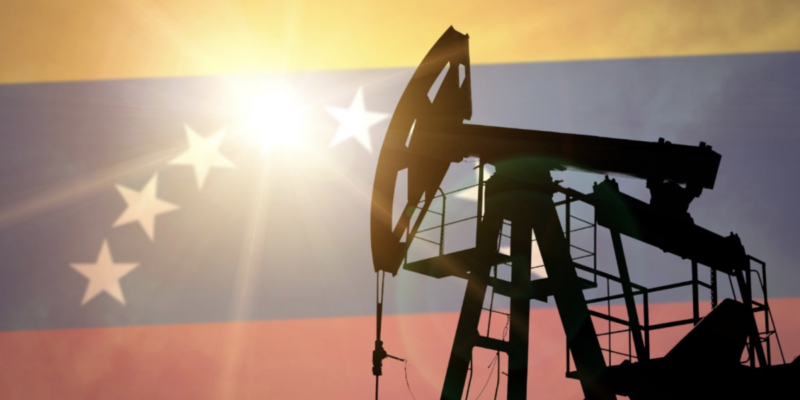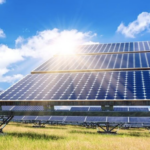The questionable oil and economic sanctions levied on the Nicolas Maduro regime in Venezuela by former President Donald Trump’s administration, have continued to cause unintended consequences to American interests and its allies in the region, but most importantly, to the Venezuelan people, argued FIU professor Eduardo Gamarra, during his participation at Florida International University’s (FIU) Steven J. Green School of International & Public Affairs “Effectiveness of Sanctions” panel discussion last Friday.
‘One of the things that we don't really fully understand is the unintended consequences of sanctions,” said Gamarra, adding “One of the most significant is the colossal humanitarian crisis, noting the enormous impact that the crisis has had on the economy.
“And now the inability of Venezuelans to feed themselves. The impact, for example, on the purchase of medication, the fact that in some parts of Venezuela, it’s almost close to famine conditions,” he continued.
Gamarra acknowledged that sanctions did not cause Venezuela’s economic downfall — it was Chavez’ and Maduro’s “absolute collapse of economic management”— but the “maximum pressure approach really accelerated the humanitarian crisis,” he added.
Not all speakers at the panel discussion agreed with Gamarra. Carrie Filipetti, Executive Director for the Vandenberg Coalition and former Deputy Special Representative for Venezuela at the U.S. Department of State under President Trump challenged his idea that “sanctions are either the root or the primary cause, or exacerbate the humanitarian crisis,” adding that Venezuela’s economic collapse and the ensuing humanitarian crisis started way before the “maximum pressure” sanctions were imposed by the Trump administration.
Filipetti, said that sanctions “were seen by the Trump administration as a way to compel good behavior.”
“The main difference between the Trump and Biden administration is [that] sanctions were seen by the Trump administration as a way to compel good behavior and we're seeing that the Biden administration uses the relief of sanctions as a means to induce the regime to change its behavior,” said Filipetti.
Filipetti was referring to the Biden administration’s recent announcement providing partial oil and mining sanctions relief in response to the electoral agreement signed between Maduro’s government and the Venezuelan opposition. The U.S. government said that it would reinstate the sanctions if the regime fails to meet its commitments, including that the Maduro government take concrete steps by the end of November authorizing all opposition candidates to run in upcoming elections and “beginning of the release” of all Venezuelan political prisoners and U.S. citizens detained in the country.
Gamarra cautioned that the partial lifting of sanctions “is not a miracle” and that the jury is certainly out on if Maduro will honor his commitments for a freer and fairer election. However, the massive turnout at Sunday’s Venezuelan opposition primaries is a positive and hopeful step.
Filipetti has deep doubts that the heavy-handed dictator will follow through, considering his track record and especially the fact that he’s declared Maria Corina Machado, the winner of the opposition primary, ineligible to run in the general election.
The panel discussed the effectiveness of economic sanctions beyond Venezuela, with David J. Kramer, Executive director for the George W. Bush Institute focusing on Russia and Eric Lob, Associate professor of Politics & International Relations at FIU, focusing on Iran.

Although there were differing viewpoints, all panelists agreed that sanctions cannot be the end game but must be one tool of a comprehensive foreign policy approach, “one that has been lacking toward Latin America in the past 20 years,” said Gamarra.
Kramer cited that academic studies show that “sanctions work about 30 percent of the time,” adding that “sanctions work best when they’re targeted and have very specific objectives.” He said that Western sanctions on Russia have only had “marginal success” and “have not been able to change Putin’s behavior.” However, he challenged the other panelists to come up with alternative solutions. “If we don’t impose sanctions then what do we do?,” especially in the absence of clear alternatives.
For his part, Prof. Eric Lob said that “maximum pressure” oil sanctions against Venezuela and Iran resulted in “maximum resistance” and not in the behavior change that was intended when they were imposed.
He added that, under the maximum pressure framework, the intent was to “break the Iranian regime” but “the opposite happened” producing “maximum resistance to the point where we almost went to war with Iran.” The problem, according to Lob, is that by isolating these regimes — taking them out of international markets and foreign market competition, we are “reinforcing the regime’s smuggling networks and economic monopolies.”
Such is the case not only of Iran, but also of Russia and Venezuela, where they have deepened ties among them and with China, to skirt sanctions, strengthen oppression and remain in power.
That’s why, according to Lob, using sanctions as your main foreign policy strategy can be counterproductive, adding that, just as in war, you should have a policy with both “carrots and sticks in dealing with adversary nations.”





